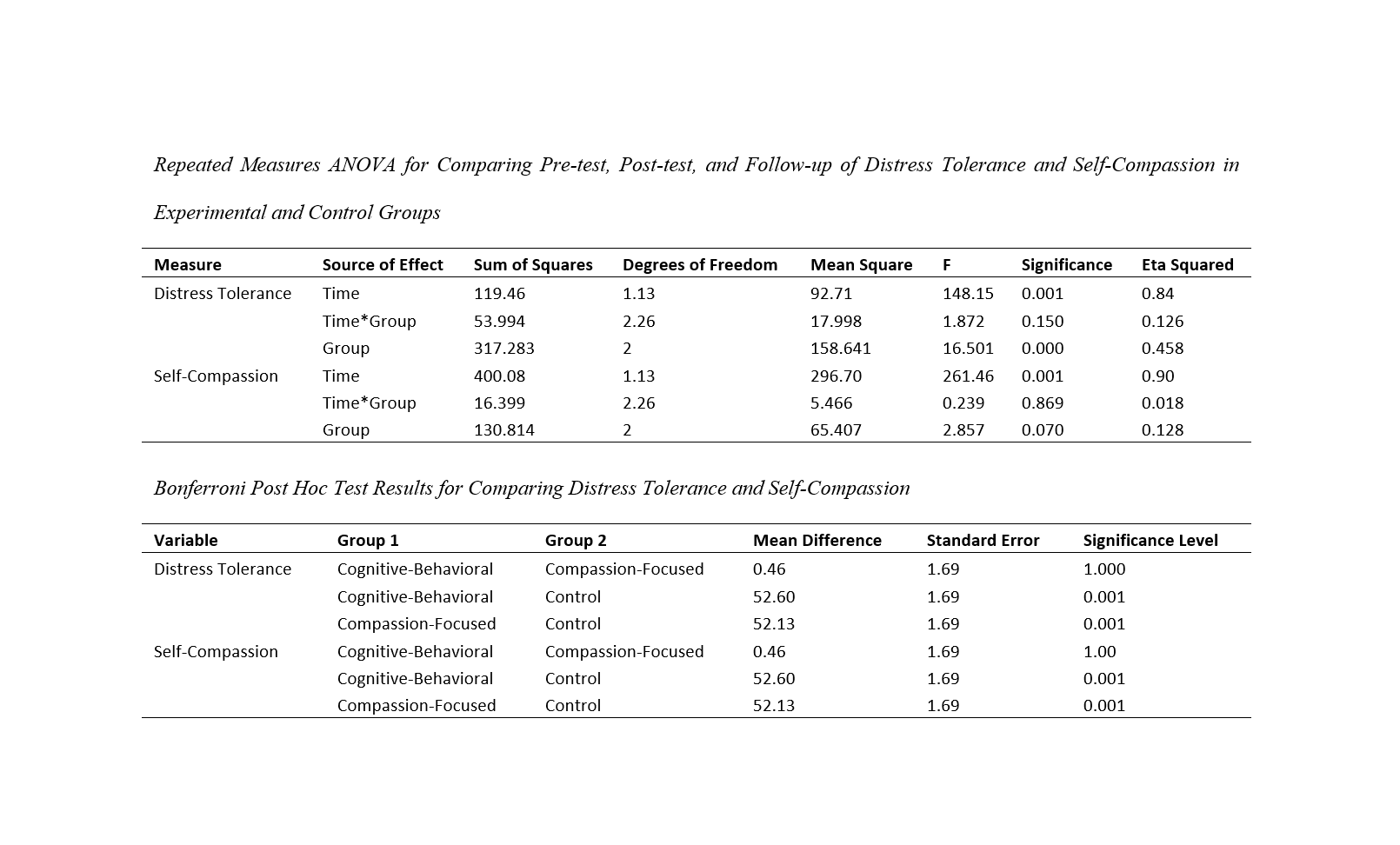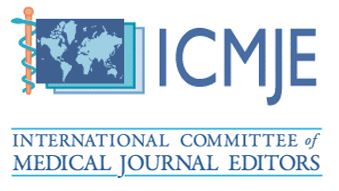Comparing the Effectiveness of Cognitive Behavioral Therapy and Compassion-Focused Therapy in Improving Distress Tolerance and Self-Compassion in Women with Experiences of Marital Infidelity
Keywords:
Cognitive Behavioral Therapy, Compassion-Focused Therapy, Distress Tolerance and Self-Compassion, Marital InfidelityAbstract
Objective: Distress tolerance and self-compassion play a significant role in mitigating the harm caused by the experience of infidelity. This study compares the effectiveness of cognitive behavioral therapy (CBT) and compassion-focused therapy (CFT) in improving distress tolerance and self-compassion among women who have experienced marital infidelity.
Materials and Methods: This quasi-experimental study employed a pre-test, post-test, follow-up design with a control group. The study population included women who had experienced infidelity by their spouse and sought counseling and psychotherapy services in Tehran in the year 2021. From this population, using purposive sampling, 45 women were selected based on the study's criteria and randomly assigned to two experimental groups and one control group (15 per group). The first experimental group received cognitive behavioral therapy, and the second received compassion-focused therapy. The control group did not receive any intervention. Data were collected using the Distress Tolerance Scale (Simons & Gaher, 2005) and the Self-Compassion Scale (Neff, 2003). Data were analyzed using repeated measures analysis of variance and SPSS software version 22.
Findings: The results showed that both distress tolerance and self-compassion scores in the cognitive-behavioral and compassion-focused therapy groups were higher in the post-test compared to the pre-test (p<0.01). Furthermore, a comparison of the two experimental groups revealed no significant difference in scores of distress tolerance and self-compassion between the groups.
Conclusion: It can be concluded that both cognitive-behavioral therapy and compassion-focused therapy were equally effective in improving distress tolerance and self-compassion among women.
Downloads

Downloads
Additional Files
Published
Issue
Section
License
Copyright (c) 2024 Parisa Karami, Mohammad Hassan Ghanifar, Ghasem Ahi (Author)

This work is licensed under a Creative Commons Attribution-NonCommercial 4.0 International License.






































